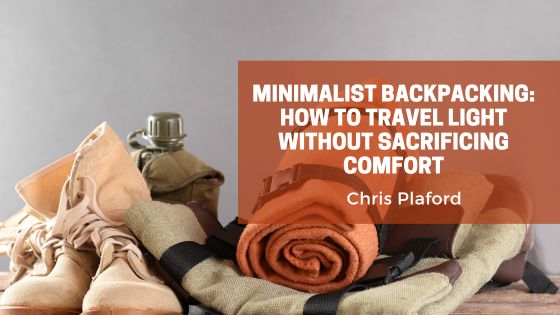Backpacking is one of the most rewarding ways to experience the outdoors, but carrying too much gear can quickly turn an adventure into a burden. Minimalist backpacking is about striking the balance between lightening your load and maintaining enough comfort to enjoy the journey. By carefully selecting essentials and rethinking your approach to gear, you can travel lighter, move faster, and still have everything you need for a safe and enjoyable trip.
Why Go Minimalist
Every ounce counts when you are on the trail. A heavy backpack not only slows you down but also increases fatigue and the risk of injury. Minimalist backpacking allows you to travel longer distances with less strain, giving you the freedom to enjoy the scenery rather than worrying about your load. Beyond physical benefits, going light encourages a simpler mindset, focusing only on what you truly need.
Choosing the Right Gear
The key to minimalist backpacking is investing in versatile and lightweight gear. Look for multi-use items that can serve more than one purpose, such as a poncho that doubles as a shelter or a cooking pot that can be used as a bowl. Modern ultralight tents, sleeping bags, and sleeping pads offer comfort without the bulk, and choosing compact cooking systems or cold-soaking meals can cut down further on weight. Clothing should be limited to layers that are adaptable to various weather conditions, prioritizing moisture-wicking and quick-drying fabrics.
Packing Essentials Only
A common mistake is packing for every possible scenario. Minimalist backpacking challenges you to consider what is truly essential. Start with the core needs: shelter, sleep system, food, water, navigation, and clothing. Avoid bringing duplicates unless absolutely necessary. For instance, one reliable multitool can replace carrying several individual tools. Trust in your planning and experience to guide your choices.
Maximizing Comfort Without Extra Weight
Comfort on the trail does not always come from carrying more gear but from using what you have more effectively. A well-fitted pack makes a huge difference in reducing strain. Smart layering keeps you comfortable in fluctuating weather, while lightweight inflatable sleeping pads can provide adequate rest without adding much weight. Small touches, like using clothing as a pillow or choosing compact camp shoes, can elevate comfort without filling your pack.
Adopting the Minimalist Mindset
Minimalist backpacking is not just about gear but also about mindset. It requires embracing flexibility and problem-solving. Instead of carrying “just in case” items, you learn to adapt to situations using the tools at hand. Many hikers find that this approach deepens their connection to nature, as they focus less on things and more on the experience itself.
Conclusion
Minimalist backpacking is about freedom – freedom from excess weight, clutter, and distractions. By carefully choosing gear, packing only essentials, and shifting your perspective, you can travel light while still enjoying the comfort needed for a rewarding outdoor adventure. The result is a more efficient, enjoyable, and mindful journey on the trail.

